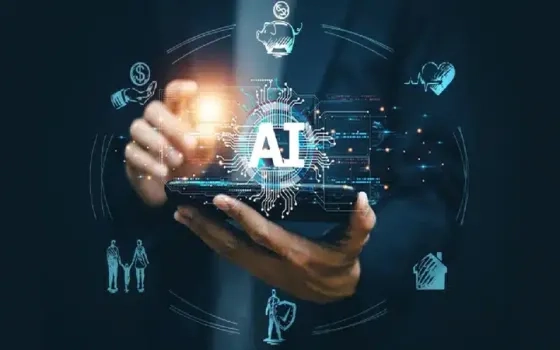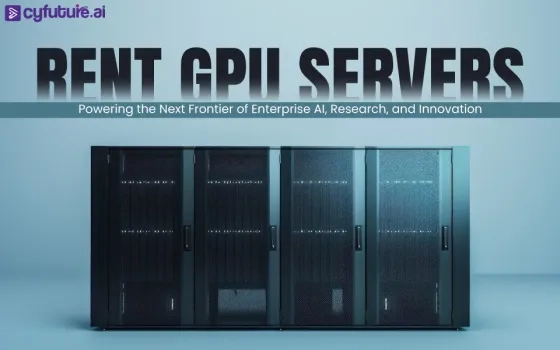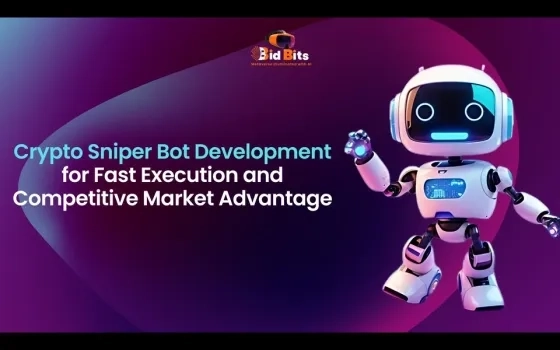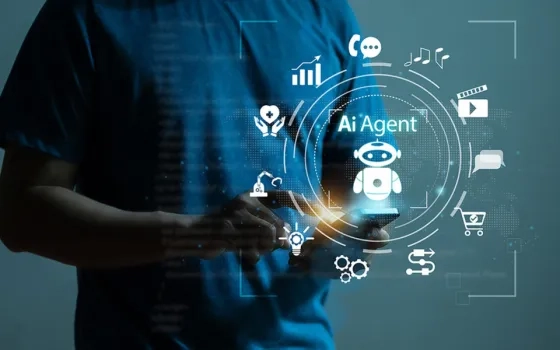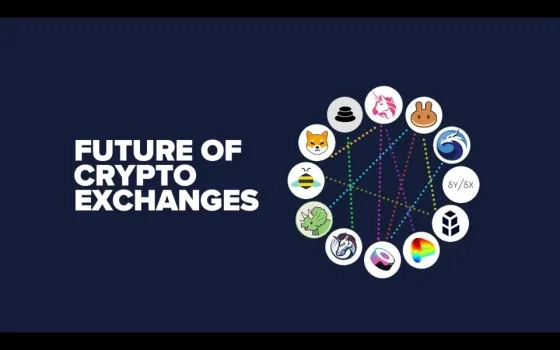Today, the technology industry is witnessing a paradigm shift as AI in software development infuses unprecedented levels of productivity and innovation. According to Gartner, Inc., by 2028, 75% of enterprise software engineers are expected to use AI code assistants, a significant increase from under 10% in early 2023.
This blog explores how AI is reshaping software development, fostering enhanced efficiency, and unlocking new realms of creativity.
1. Automating Repetitive Tasks
One of the most significant impacts of artificial intelligence in software development is enhanced productivity by automating repetitive and mundane tasks like code generation, debugging, and testing, which traditionally consumed a substantial amount of time. These tools not only accelerate the development process but also minimize human error, leading to higher-quality software products. Here are a few examples:
• Code Generation: AI-powered code generators like GitHub Copilot assist developers by suggesting code snippets and entire functions, significantly speeding up the coding process.
• Automated Testing: Tools like Testim and Applitools leverage AI to perform automated testing, identifying bugs and inconsistencies more efficiently than manual testing.
2. Enhanced Debugging and Error Detection
AI's capability to analyze high volumes of data enables it to detect patterns and anomalies that may elude human developers. This is particularly beneficial in debugging and error detection, where AI can identify and rectify issues with remarkable precision. Machine learning models can predict potential bugs based on historical data, allowing developers to proactively address them before they escalate into critical problems. Examples include:
• Static Analysis Tools: AI-powered static analysis tools, such as DeepCode and SonarQube, analyze code for potential errors and vulnerabilities, offering real-time feedback and suggestions for improvement.
• Predictive Debugging: Leveraging machine learning, tools like Microsoft's IntelliCode predict and highlight possible bugs, enabling developers to address them early in the development cycle.
3. Intelligent Project Management
AI-driven project management tools are revolutionizing how software development projects are planned and executed. These tools utilize AI algorithms to analyze project data, predict potential bottlenecks, and optimize resource allocation. By providing actionable insights and recommendations, AI enhances decision-making, which in turn ensures that projects meet timelines while fulfilling the budget requirements. Key benefits include:
• Resource Optimization: AI tools like ClickUp and Monday.com optimize resource allocation by analyzing team performance and workload, ensuring a balanced distribution of tasks.
• Risk Mitigation: AI-powered project management platforms like Asana predict potential project risks based on historical data, allowing managers to implement preventive measures proactively.
4. Enhanced Collaboration and Communication
AI in the tech industry has delivered sweeping results in promoting collaboration and communication among development teams. AI-powered chatbots and virtual assistants facilitate seamless communication, answering queries, and providing real-time updates. These tools enhance productivity by ensuring that team members stay informed and aligned throughout the development process. Examples include:
• AI Chatbots: Tools like Slackbot and Microsoft Teams' AI assistants streamline communication by providing instant responses to queries and automating routine tasks.
• Virtual Collaboration Platforms: AI-driven platforms like Notion and Confluence enhance collaboration by providing intelligent suggestions and organizing project documentation effectively.
5. Data-Driven Decision Making
AI technology empowers software development innovation and teams with data-driven insights that inform critical decisions. By analyzing vast amounts of data, AI algorithms identify trends, user preferences, and market demands, guiding the development of features and functionalities that align with user needs. This data-driven approach ensures that software products are not only innovative but also highly relevant to the target audience. Key applications include:
• User Behavior Analysis: AI tools like Mixpanel and Amplitude analyze user behavior data to provide insights into feature usage and user preferences, informing product development strategies.
• Market Trend Analysis: Platforms like Gartner and Forrester leverage AI to provide market trend analysis, helping development teams align their products with emerging industry trends.
6. Innovative AI-Driven Features
AI applications are not only enhancing the development process but also enabling the creation of innovative software features. From personalized user experiences to intelligent recommendations, AI-driven features are transforming how users interact with software products. These features not only enhance user satisfaction but also differentiate products in a competitive market. Examples include:
• Personalized Experiences: AI-powered personalization engines like Adobe Sensei tailor user experiences based on individual preferences and behaviors.
• Intelligent Recommendations: Recommendation systems like those used by Netflix and Amazon leverage AI to provide personalized content and product suggestions, enhancing user engagement.
7. Improving Software Security
Security is a critical concern in software development, and AI is playing a pivotal role in enhancing software security measures. AI algorithms can identify vulnerabilities and potential threats more effectively than traditional methods, enabling proactive security measures. By continuously monitoring and analyzing software behavior, AI helps prevent security breaches and ensures robust protection. Key applications include:
• Threat Detection: AI-driven security platforms like Darktrace and Vectra detect and respond to potential threats in real-time, safeguarding software systems from cyberattacks.
• Vulnerability Management: AI-powered tools like Snyk and WhiteSource scan code for vulnerabilities, providing developers with actionable insights for timely remediation.
8. Enhanced Customer Support
AI is revolutionizing Customer Relationship Management in the software development industry. AI-powered chatbots and virtual assistants provide instant support to users, addressing queries and resolving issues efficiently. This not only enhances user satisfaction but also reduces the burden on human support teams, allowing them to focus on more complex problems. Examples include:
• AI Chatbots: Customer support chatbots like Zendesk's Answer Bot and Intercom provide 24/7 assistance, handling common queries and directing complex issues to human agents.
• Virtual Assistants: AI virtual assistants like Drift and HubSpot assist users in navigating software products, providing real-time help and improving user experience.
9. Facilitating Continuous Integration and Delivery (CI/CD)
AI is streamlining the CI/CD pipeline, making the software development process more efficient and reliable. By automating testing, deployment, and monitoring, AI ensures that new code is integrated and delivered seamlessly. This continuous integration and delivery enhance the speed and quality of software releases, allowing development teams to respond to market demands quickly. Key benefits include:
• Automated Deployment: AI-driven CI/CD tools like Jenkins and CircleCI automate the deployment process, reducing manual intervention and minimizing errors.
• Continuous Monitoring: AI-powered monitoring tools like Datadog and New Relic provide real-time insights into software performance, ensuring smooth operation and quick identification of issues.
10. Industry-Leading AI Tools in Software Development
To harness the full potential of AI in software development, it is essential to leverage industry-leading tools that offer advanced capabilities and robust performance. Some of the most prominent AI tools that are making a significant impact include:
• GitHub Copilot: An AI-powered code completion tool that suggests entire lines or blocks of code, helping developers code faster and with fewer errors.
• DeepCode: A static analysis tool that uses AI to understand code semantics and identify critical issues, providing real-time feedback and suggestions.
• ClickUp: An AI-enhanced project management tool that optimizes resource allocation and predicts project risks, ensuring efficient project execution.
• Darktrace: A cybersecurity AI platform that detects and responds to threats in real-time, safeguarding software systems from malicious attacks.
What Are the Challenges and Considerations?
While AI offers numerous benefits, organizations may also experience challenges during adoption. However, integrating AI into software development also presents several challenges and considerations:
• Data Quality: The effectiveness of AI models heavily depends on the quality of data they are trained on. Ensuring high-quality, relevant, and unbiased data is crucial for accurate predictions and recommendations.
• Ethical Concerns: AI systems can inadvertently perpetuate biases present in training data. Addressing ethical concerns and ensuring fairness and transparency in AI.
Conclusion
AI is revolutionizing software development by enhancing productivity and driving innovation. In today's hi-tech world, AI tools are automating routine tasks, improving error detection, and optimizing project management, fundamentally reshaping how developers work and creating new possibilities for the future. As technologies like quantum computing, edge computing, and IoT continue to advance, the impact of AI on the industry will only grow, offering more opportunities to streamline processes and inspire creative solutions. Embracing AI is fundamental in order to stay competitive and achieve success in the ever-evolving, hi-tech landscape of software development.







